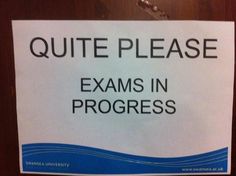Without question, your grades and test scores are the most important part of your grad school application. But stellar grades and a high GRE score are not enough to make you stand out from the thousands of other applicants with similar scores.
So how can you distinguish yourself? The answer: A unique and thoughtfully crafted personal statement.
Think about all the study sessions, missed parties and hard work you’ve put into maintaining good grades and achieving a score that made your mother cry tears of joy. Don’t throw all that away by writing a weak personal statement. This is a valuable opportunity for you to show the admissions department why they would be remiss not to accept you.
On the other hand, it’s important to not get too creative. I’m sorry, but you should probably save your Quentin Tarantino-style statement for another time. Trust me on that one.
Instead, it’s time to channel your inner Goldilocks and express who you are in a way that’s not too much and not too little, but is “just right” to catch the admission department’s attention.
To help you navigate through the writing process, we’ve compiled a list of 13 mistakes you should avoid when writing your personal statement.
1. Cliches

Cliches can be hard to avoid. They’ve been lodged in our memory since the dawn of time. (See what I did there?) But they’re uninspiring, tired, and show a lack of creativity. Instead, come up with your own metaphors and similes to say in your unique way that you “have a thirst for knowledge,” and avoid clichés like they’re going out of style.
2. Redundancy
Don’t include your GPA in your personal statement. Let me say that again. Don’t include your GPA in your personal statement. In fact, avoid including any information – such as awards you’ve received, etc. – that can be found elsewhere in your application. It’s redundant. Think of your personal statement as valuable real estate and there’s only enough space for the best, most unique information.
3. Spelling or Grammatical Errors

This cannot be overstated. Admissions directors won’t be able to fully appreciate your powerful personal statement if they have to keep stumbling over spelling and grammar errors. Avoid errors by asking a friend or family member to help you proofread your statement. Another pair of eyes is more likely to catch if you misspelled “conscientious,” for example.
4. Profanity or Slang
This should go without saying, but some students forget to leave out certain inappropriate four-letter words. Just. Don’t. Do. It.
5. Quotes
Quotes can be very inspirational, especially when they come from great writers and charismatic people like Martin Luther King, Jr. or E.E. Cummings. But they’re not YOUR words, and they don’t tell the admissions director who you are. Leave them out of your personal statement and post them on your Instagram instead.
6. Hyperboles

You want to show enthusiasm in your statement, but it’s not necessary to say that if you don’t get into grad school your “mother will kill you.” The admissions director will also likely not be impressed if you tell them you have studied no less than a million hours to get into their school. In fact, avoid any and all exaggerations.
7. Plagiarism
These days, it’s easy to find examples of great personal statements online. However, keep in mind that universities will be able to identify if you have copied any material from another source. It’s not worth the risk and, again, it doesn’t let the school see your uniqueness.
8. Other People
Remember, keep the focus of your statement on you and what makes you stand out. Avoid too much mention of mentors, family members, or other people who may have inspired your academic goals. Keep it all about you.
9. Negativity

Keep your personal statement upbeat and positive. Avoid talking about any past educational experiences. You should also avoid mentioning any personal circumstances that have caused you difficulty – unless you are able to highlight how you overcame the circumstances and what you learned from them.
10. Money
Although you may be trying to secure a financial award from the school, you should leave out any mention of money in your essay. Period.
11. Arrogance
Of course you want to highlight what differentiates you from other students, but be sure to do so in a humbling way. Boasting about how awesome or great you are may be off-putting to those reviewing your application. Also, you should show, rather than tell how wonderful you are by describing certain unique experiences rather than listing superficial adjectives to describe yourself.
12. Humor
Often times, we immediately try to use humor to showcase what makes us unique. Being quirky, though, can be risky in an admissions essay. So proceed with caution. Keep in mind that those in the admissions department may not share your sense of humor, so it’s best to keep your weird jokes between you and your friends.
13. Confessions
This is an opportunity to describe your educational and professional goals in an intentional way. It is not an opportunity to reveal the deepest, darkest corners of your mind, so stay on point and avoid any irrelevant information.
About the Author:

Jennifer is here to help you navigate college and grad school while still maintaining your sanity. She is a graduate of the University of Florida (Go Gators!), with a major in Journalism and Communications and a minor in Psychology. She’s also a certified Montessori instructor and once witnessed a four-year-old correctly label all 54 countries on a map of Africa. She prefers to sing when not in the shower, and she’s not afraid of heights as long as she’s standing on something that is less than 15-feet tall.
Image Sources:
- https://tessatypt.wordpress.com/author/tessaotten/
- http://thumbpress.com/10-funny-spelling-and-grammar-mistakes/
- https://www.pinterest.com/pin/533113674616215339/
- http://tnova.fr/notes/refonder-l-aide-aux-eleves-en-grande-difficulte-scolaire

Leave a Reply